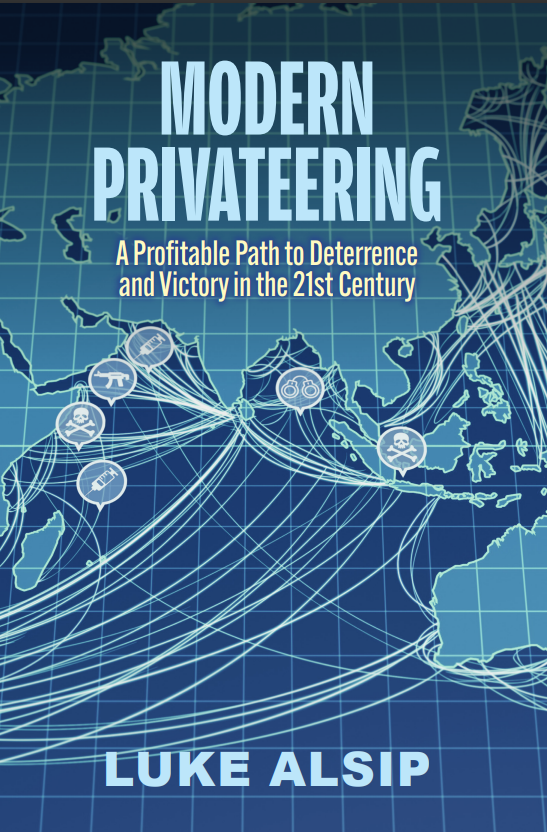Luke Alsip
Luke Alsip is the author of Modern Privateering and President of The Privateer Project, an initiative dedicated to examining how privateering once a vital tool of maritime strategy can be adapted to address today’s geopolitical, cyber, and economic security challenges. In this role, Luke conducts research, public outreach, and policy engagement to explore innovative solutions at the intersection of history, law, and modern conflict.
Luke brings over fifteen years of professional experience in the defense and intelligence community. He has served as an intelligence specialist, officer, analyst, and consultant, supporting missions for the Department of Defense(War) and the U.S. Intelligence Community. His work has spanned global theaters and focused on identifying threats, informing operational decisions, and advancing strategic initiatives.
A native of Chicago who grew up in Colorado, Luke enlisted in the U.S. Navy directly after high school. His service took him from Hawaii to Bahrain, where he gained firsthand exposure to counter terrorism/intelligence/counternarcotic operations and the complexities of international security. These experiences deeply shaped his perspective on how non-state actors and innovative contracting models might contribute to solving enduring security problems.
Today, Luke combines his professional background with his passion for writing and scholarship. His debut book, Modern Privateering, weaves together history, law, and strategy to make the case for a modern revival of privateering principles. When not researching or writing, Luke enjoys traveling and exploring new places with his family.”
About the Book:
Modern Privateering: A Profitable Path to Deterrence and Victory in the 21st Century
Modern Privateering makes a bold case for the revival of a centuries-old tool: privateering. Once dismissed as a relic of the Age of Sail, it’s now reimagined as a cost-effective, legally sanctioned means to degrade enemy power, deter aggression, and defend freedom on the seas.
Whether facing authoritarian regimes, pirates, or transnational criminals, this strategic handbook lays out how privateering could:
- Impose steep economic costs on U.S. adversaries
- Disrupt criminal and illicit maritime activity
- Strengthen deterrence and shorten conflicts
- Provide economic lifelines during wartime
With practical guidance, revenue models, and operational insights, Modern Privateering equips entrepreneurs, strategists, and policymakers to build privateering firms for the 21rst century. This is not just a history lesson-its a call to action. Its time to bring privateers back to the fight.

